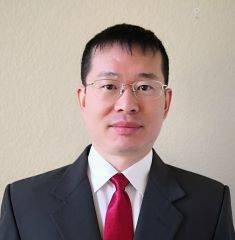Scholar Spotlight
Dr. Tiankai Wang

1. What is your role at CHP, and how long have you worked here?
- I am Professor and MHIM Program Director in the Department of Health Information Management.
- I have worked here for fourteen (14) years.
2. Could you tell us about your research interests and why you are passionate about them?
- My research interests are in the areas of health information management, and healthcare finance.
- My passion for those areas stems from the recognition that financial performance and information management in healthcare have a significant impact on individuals, communities, and societies as a whole. By understanding and improving health finance and health information management, we can work towards a more accessible, affordable, and efficient healthcare system.
3. What are some potential applications of your research, and what holds promise for patients?
- Research in healthcare finance and health information management holds promise for patients by improving the affordability, accessibility, and quality of healthcare services. By optimizing financial performance, enhancing health data management, and promoting evidence-based decision-making, patients can benefit from more efficient and patient-centered healthcare delivery.
4. Could you tell us about your recent grant applications and how they will advance your area of research?
- I was awarded a $1.04 million (five years) grant project sponsored by the Department of Transportation as the Principal Investigator in Spring 2023.
- This grant will provide the necessary resources, partnerships, and focus to advance my area of research. It enables me to explore the intersection of transportation and healthcare, generate evidence-based insights, and make a tangible impact on transportation policies, accessibility to healthcare services, and public health outcomes.
5. Could you describe your vision for the research work you are leading at CHP?
- My vision for research work at the CHP drives impactful research that improves patient outcomes, enhances healthcare practices, and contributes to the advancement of the field. Through collaboration, innovation, and a commitment to translating research into action, I strive to make a lasting impact on the healthcare industry and the well-being of patients.
6. What is the best part about being a scholar at the College of Health Professions at Texas State University?
- The best part is the opportunity to engage with experienced faculty who are passionate about their fields and dedicated to guiding students toward success. Additionally, the college's commitment to interdisciplinary collaboration fosters a vibrant and dynamic research environment, allowing me to explore innovative approaches to healthcare research.
7. Do you have any advice for faculty considering research and grantsmanship at CHP?
- Grantsmanship is a continuous learning process. Building a successful research program takes time, dedication, and perseverance. By seeking support and collaboration, and staying committed to your research goals, you can increase your chances of securing grants and advancing your research at the CHP.
8. What are your hobbies and interests (other than making CHP great)?
- I love cooking, gardening, and DIY.
Achieving excellence in the non-academic impact of our research is one of our fundamental objectives in the Office of Research at the College of Health Professions (CHP). Therefore, the selection criteria for scholar spotlight at CHP include grant activity and research impact listed below:
-
Apply got external grants opportunities and receive funded grants.
-
Participate in interdisciplinary research led by faculty from departments both in and outside CHP.
-
Achieve integrity and independence to influence the world beyond academia, benefiting the health and wellbeing of people and society.
-
Build mutually beneficial and enduring partnerships to achieve positive outcomes in health care.
-
Produce meaningful discoveries such as a new device, technology, treatment, or initiative in health care.